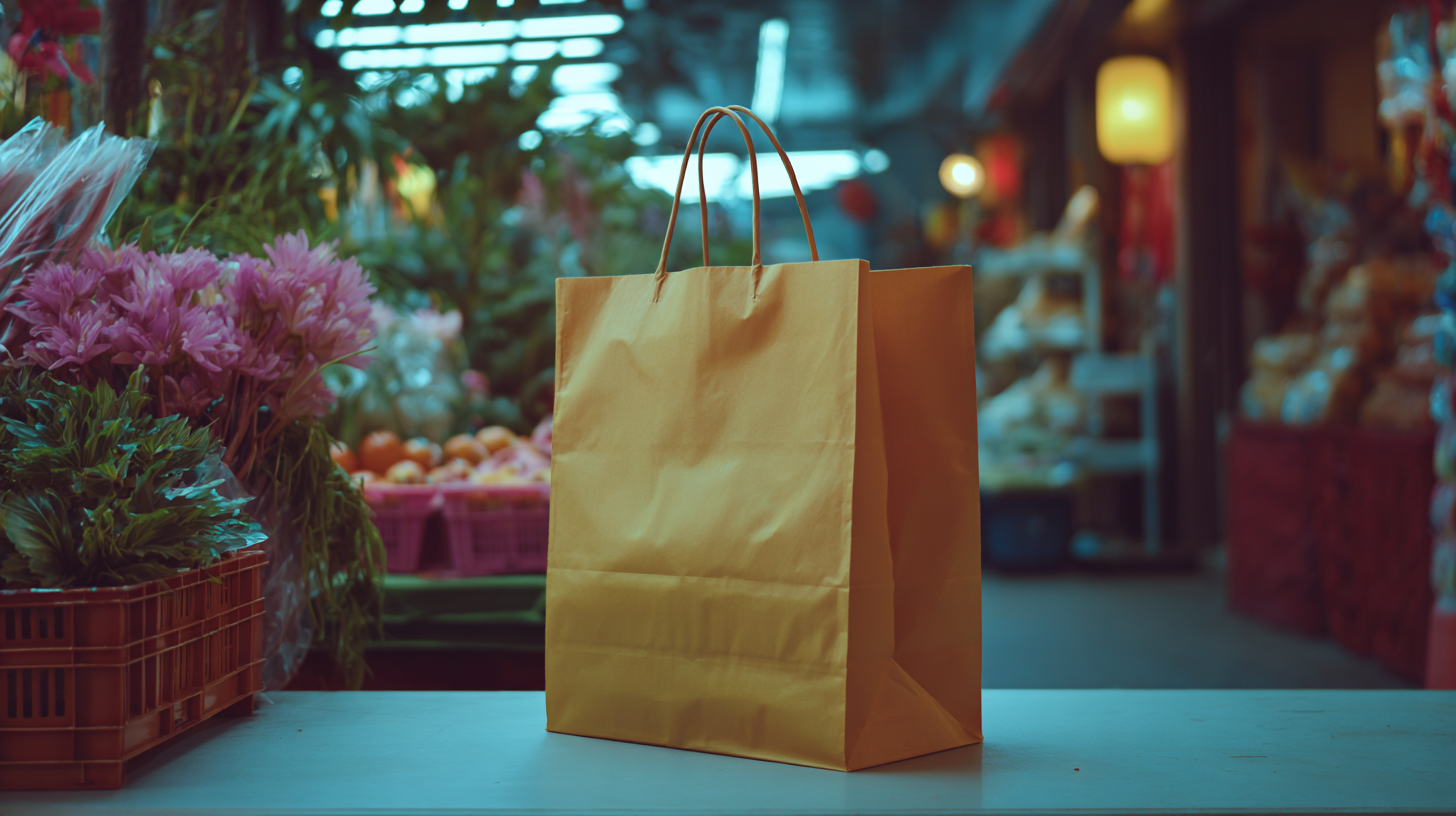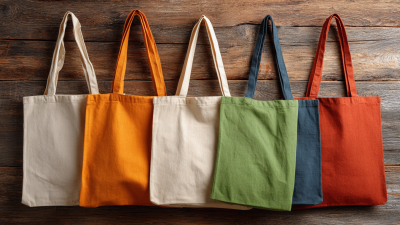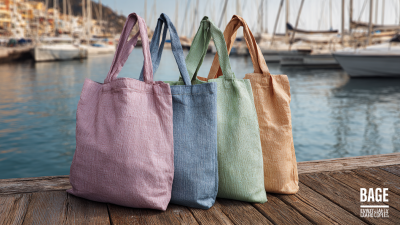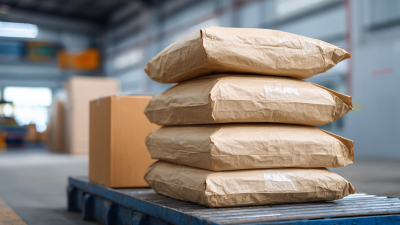
Exploring Market Trends for Delivery Bags at China Import and Export Fair 2025: Insights from Industry Data
As the global landscape of trade continues to evolve, the significance of effective delivery solutions has never been more pronounced. In this regard, the China Import and Export Fair, also known as the Canton Fair, serves as a pivotal platform for showcasing emerging market trends, especially for products such as delivery bags.

With the upcoming 138th event in 2025, industry stakeholders are gearing up to explore the latest innovations and consumer preferences surrounding delivery bags. This comprehensive analysis draws on a wealth of industry data to highlight key trends influencing the delivery bag market, including sustainability, customization, and technological advancements.
By examining these factors, we aim to provide valuable insights for businesses seeking to navigate the competitive landscape and meet the growing demand for efficient and eco-friendly delivery solutions.
Market Overview: The Importance of Delivery Bags in the E-commerce Sector
The e-commerce sector has witnessed a significant transformation in recent years, emphasizing the critical role of delivery bags. As the market continues to expand, particularly in light of recent trends, the importance of these bags cannot be overstated. Delivery bags are not only essential for the safe transport of goods but also serve as a branding tool that enhances customer experience. With the rise of cross-border commerce, businesses are increasingly focusing on sustainable and cost-effective packaging solutions that cater to consumer demands.
Moreover, the acceleration of online grocery services has further spotlighted the utility of delivery bags. Companies are striving to meet consumer expectations for convenience and efficiency, leading to a surge in demand for durable and functional delivery bags. This evolving landscape necessitates that businesses adapt their strategies, integrating innovative solutions that align with broader market trends. As e-commerce continues to evolve, the role of delivery bags will remain pivotal in ensuring operational efficiency and customer satisfaction.
Key Trends Influencing Delivery Bag Designs and Materials in 2025
 As the logistics and delivery industry continues to evolve, the design and materials used in delivery bags are seeing significant transformations, particularly in 2025. A key trend influencing these designs is the increasing demand for sustainability. Consumers are becoming more environmentally conscious, prompting manufacturers to explore biodegradable and recyclable materials. Fabrics like organic cotton and recycled polyester are gaining popularity, as they not only reduce environmental impact but also appeal to a growing demographic focused on eco-friendly products.
As the logistics and delivery industry continues to evolve, the design and materials used in delivery bags are seeing significant transformations, particularly in 2025. A key trend influencing these designs is the increasing demand for sustainability. Consumers are becoming more environmentally conscious, prompting manufacturers to explore biodegradable and recyclable materials. Fabrics like organic cotton and recycled polyester are gaining popularity, as they not only reduce environmental impact but also appeal to a growing demographic focused on eco-friendly products.
Another notable trend is the incorporation of smart technology into delivery bags. With the rise of e-commerce, innovations such as built-in GPS tracking and temperature control systems are becoming essential features for delivery service providers. These advancements enhance efficiency and security, ensuring that food and goods are transported under optimal conditions. Additionally, the aesthetics of delivery bags are evolving, with brands aiming for sleek and modern designs that reflect their identity while maintaining functionality. This blend of style and practicality aims to meet the diverse expectations of consumers and logistics companies in an ever-competitive market.
Consumer Preferences: Analyzing Demand for Eco-Friendly Delivery Solutions
Consumer preferences are increasingly gravitating toward eco-friendly delivery solutions, a trend underscored by recent data from the China Import and Export Fair 2025.
According to a report published by the International Eco-Friendly Packaging Association, over
65% of consumers are willing to pay a premium for sustainable packaging options. This shift emphasizes the rising awareness surrounding environmental issues and the significant impact of consumer choices on the market for delivery bags.
Additionally, a survey conducted by the Green Packaging Initiative found that
78% of respondents prefer brands that demonstrate a commitment to sustainability. With the rising demand for biodegradable and recyclable materials, manufacturers are urged to adapt their production processes to incorporate these eco-friendly options. As industry leaders at the fair showcase innovative designs that minimize environmental impact, the shift toward sustainable delivery solutions is not only beneficial for the planet but also aligns with evolving consumer values that prioritize ecological responsibility.
Competitive Landscape: Major Players in the Delivery Bag Market
The competitive landscape of the delivery bag market is rapidly evolving, especially as the demand for efficient and reliable delivery solutions continues to surge. Key players in this sector are leveraging innovative materials and designs to meet the diverse needs of businesses ranging from food delivery to e-commerce. Leading manufacturers are focusing on sustainability, integrating eco-friendly materials to appeal to environmentally-conscious consumers. Companies like XYZ Bags and ABC Packaging have emerged as frontrunners by investing in research and development, ensuring their products are not only functional but also aligned with current market expectations.
Furthermore, collaboration among industry stakeholders is becoming increasingly common. Partnerships between manufacturers and logistics firms are aimed at optimizing delivery operations while enhancing the performance of delivery bags. This synergy is crucial as companies seek to strengthen their supply chain resilience and improve customer satisfaction. As we approach the China Import and Export Fair 2025, it is clear that understanding the competitive dynamics within the delivery bag market will play a pivotal role for participants aiming to capitalize on emerging opportunities.
Exploring Market Trends for Delivery Bags at China Import and Export Fair 2025: Insights from Industry Data
| Market Segment | 2024 Market Share (%) | 2025 Projection (%) | Growth Rate (CAGR) | Key Trends |
|---|---|---|---|---|
| Eco-friendly Delivery Bags | 25 | 35 | 15% | Increased demand for sustainability |
| Insulated Delivery Bags | 30 | 28 | -2% | Demand stability due to food delivery |
| Reinforced Delivery Bags | 20 | 22 | 5% | Growth due to rising e-commerce |
| Reusable Delivery Bags | 15 | 25 | 20% | Trend towards reduced plastic waste |
| Customizable Delivery Bags | 10 | 15 | 10% | Growing personalization trend |
Future Predictions: Market Growth and Innovations Post-2025
As we look toward the post-2025 landscape, the global appliance market is set for a remarkable expansion, projected to grow from $75.72 billion in 2025 to $116.57 billion by 2032, registering an impressive annual growth rate of 6.39%. This expansion suggests a vibrant shift in consumer demand and an increase in disposable income, particularly in emerging markets where the demand for high-tech home appliances is surging. This trend indicates not just growth, but also a pivot towards smarter appliances integrated with cutting-edge technology.
Simultaneously, the battery technology sector is undergoing a revolutionary transformation driven by artificial intelligence. The application of AI in battery technology spans five key areas, focusing on innovations that enhance performance and efficiency, streamline supply chains, and foster a culture of innovation among industry players. The period from 2025 to 2035 will witness a surge in opportunities, with significant investments fuelling advancements that promise to redefine energy storage solutions. The confluence of these trends indicates a future where technology not only supports everyday convenience but also contributes to a more sustainable and efficient society.

Related Posts
-

What are the Benefits of Choosing the Best Reusable Bags for Your Lifestyle
-

China's Premium Quality Large Poly Mailers Your Trusted Global Partner
-

Exploring the Versatility and Advantages of the Best Reusable Bags for Every Occasion
-

The Ultimate Guide to Choosing the Best Reusable Bags for Every Lifestyle
-

How to Choose the Right Polymailer Bag for Your Packaging Needs
-

5 Essential Tips for Choosing the Best Ploy Mailer for Your Business



